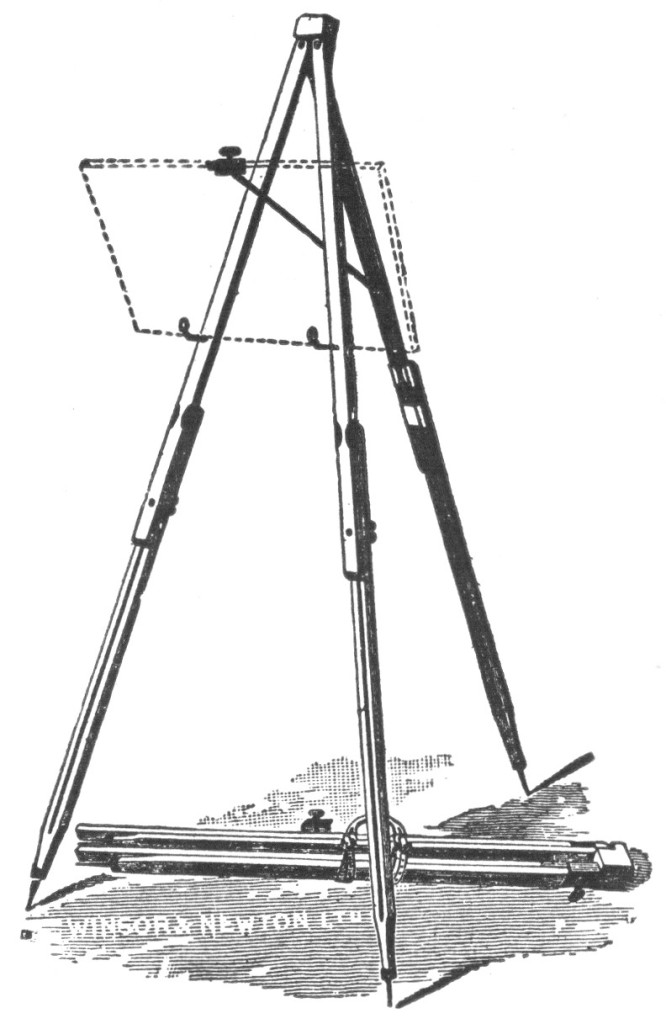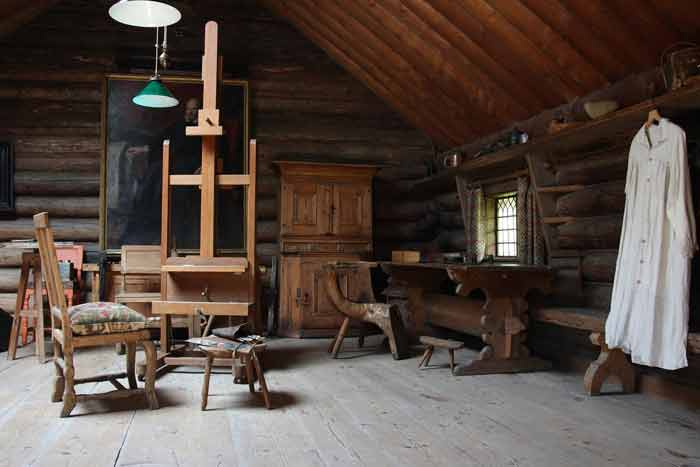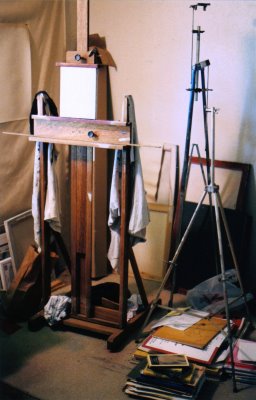Oil painting essential materials: Easels

Oil painting essential materials:
EASELS

The important thing in an easel is that it should be steady and firm; that it should hold the canvas without trembling, and so that it will not fall as you paint out towards the edges. You often paint with a heavy hand, and you must not have to hold on to your picture with one hand and paint with the other. Nothing is more annoying than a poor easel, and nothing will give you more solid satisfaction, than the result of a little generosity in paying for a good one. The ideal thing for the studio is, of course, the great “screw easel,” which is heavy, safe, convenient, and expensive. We would like to have one, but we can’t afford it, so we won’t speak of it. The next best thing is an ordinary easel which doesn’t cost a great deal, but which is firm and solid and practical. Don’t get one of the various three-legged folding easels which cost about seventy-five cents or a dollar. They tumble down too often and too easily. The wear and tear on the temper they cause is more than they are worth. It is true that they fold up out of the way. But they fold up when you don’t expect them to; and you ought to be able to afford room enough for an easel anyway, if you paint at all.
The illustration shows one of the firmest of the inexpensive easels, and one which will fold up into as small a compass as any practical easel will. It will hold perfectly well a good-sized canvas, even with its frame, and will not tumble over on slight provocation.
Another good easel is shown on It is more lightly made, not so well braced, but is more convenient for raising and lowering the picture, as the catch allows the whole thing to be raised and lowered at once.

If you are to save money on your easel, don’t save on the construction and strength of it, but on the finish. Let the polish and varnish go, but get a well-made easel with solid wood. The heavier it is, the less easily it packs away, to be sure, but the more steadily it will hold your picture.
Sketching Easels.—The same things are of importance in an easel for out-of-door work that are needed in a studio easel, except that it must also be portable. So if you must have a folding easel, get a good sketching easel; or if you can’t have one for in-doors and one for out-doors, then pay a good price for a sketching easel, and use it in doors and out also. There are two things which are absolutely essential in a sketching easel. It must have legs which may be made longer and shorter, and it must hold the canvas firmly. It is not enough to lean the canvas on it. The wind blows it over just when you are putting on an interesting touch, or the touch itself upsets it, either of which is most aggravating, and does not tend to satisfactory work. You must not be obliged to sit down to work just where you don’t want to, a little this side or a little that side of the chosen spot, because the ground isn’t even there and the easel will not stand straight. You must be able to make a leg longer or shorter as the unevenness of the ground necessitates. It is impossible to work among rocks or on hillsides if you cannot make your easel stand as you want it. These things are not to be got round. You might as well not work as to sketch with a poor sketching easel. And you must pay a good price for it. I use an easel every day that I have worked on every summer for twelve years. Most artists are doing much the same.
If you are working in a strong wind, or if you have a large canvas, such an easel as this illustration shows is the best and safest yet invented, and it is as good for other work, and particularly when you want to stand up. And either of these easels will be perfectly satisfactory to use in the house.



This Post Has 0 Comments